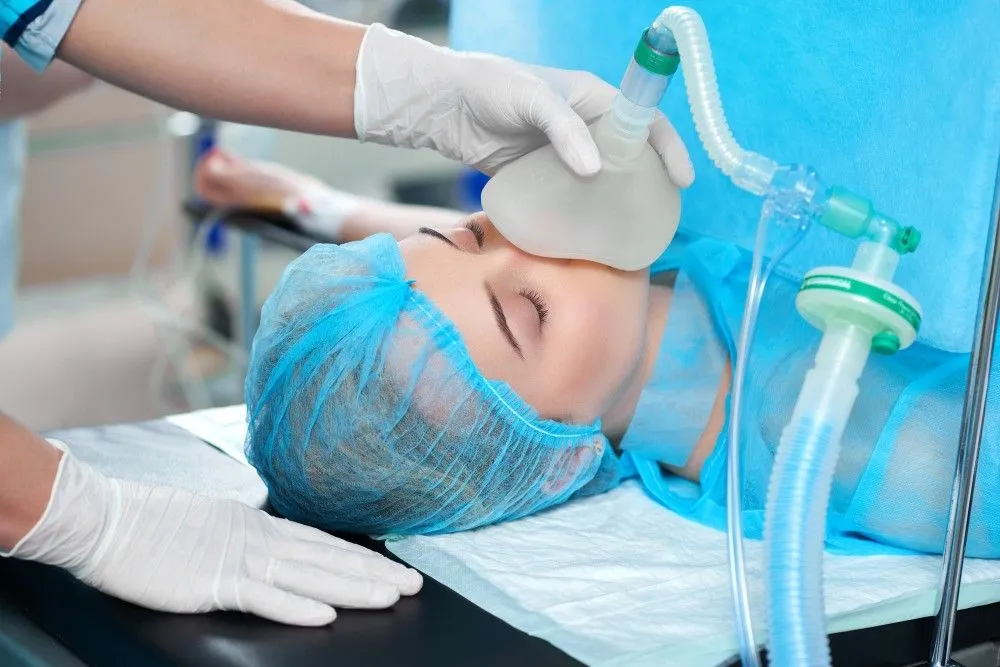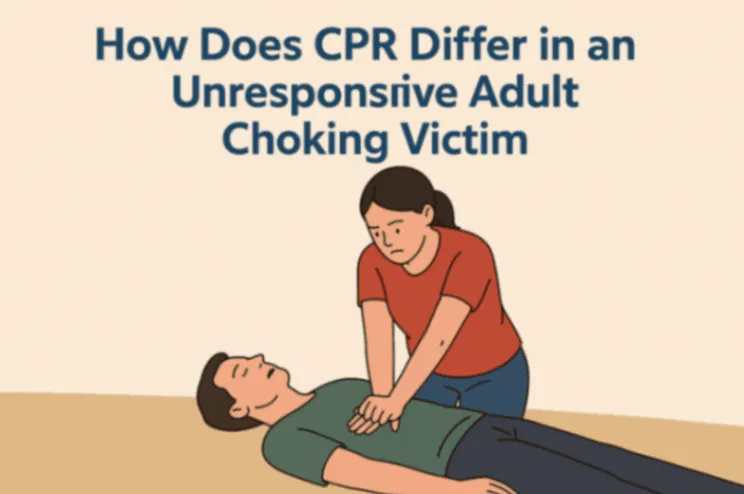Pneumonia is a respiratory infection that impacts a huge population around the globe. In the United States, there are millions of hospitalization cases of this condition each year. This illness can be as mild as flu-like symptoms or as severe or intense as organ failure. So, early discovery is very crucial for effective and successful treatment. For that, you should thoroughly understand all the stages of pneumonia. If you know these stages, you can take the appropriate precautions to protect yourself and your loved ones.
In this blog, we will discover all the four stages of pneumonia, exploring the symptoms and treatment options. Additionally, we will discuss recovery time and preventive measures. Read on!
Understanding Pneumonia:
Infection due to pneumococcal bacteria leads to inflammation of the air sacs in the lungs which is called pneumonia. A study says that it can be caused by various bacteria but Streptococcus pneumoniae is the most common one in the USA. It can occur on its own or as a result of a viral respiratory infection such as influenza or RSV. Factors like age, other medical conditions, weak immune system, and smoking habits can raise the chances of pneumonia.
The 4 Stages of Pneumonia:
When you get the infection, pneumonia occurs in 4 stages. Understanding each stage can help the healthcare providers determine the severity of the illness and appropriate treatment. The degree of symptoms might differ from person to person based on the underlying reason and their general state of health. Let's explore and discuss each stage:
Stage 1: Early Pneumonia:
In the early stages of pneumonia, symptoms may appear all at once or grow gradually over a few days. This is because pneumonia is a progressive illness. These symptoms, which include a cough (either dry or with phlegm), fever, chills, chest pain, shortness of breath, and weariness, may be comparable to those of a regular cold or the flu. Inflammation of the lungs and other respiratory symptoms result from the immune system dispatching white blood cells to the area. It is especially important for older people and those with preexisting conditions to receive medical help without delay.
Stage 2: Progressive Pneumonia:
If left untreated, pneumonia can progress to a more severe stage. Symptoms in this stage become more pronounced and may include worsening shortness of breath, persistent and productive cough, high fever, increased fatigue, chest pain, and, in some cases, confusion. Lung inflammation intensifies, making breathing even more challenging. People who are older or who have immune systems that are already impaired have a greater chance of developing difficulties during this period.
Stage 3: Advanced Pneumonia:
In an advanced stage of pneumonia, the infection can move to the bloodstream. This can consequently cause sepsis or affect other organs like the heart or kidneys. Symptoms at this stage may include:
-
Confusion
-
High fever
-
Rapid heart rate
-
Blue lips or fingertips
-
Intense shortness of breath
-
A persistent cough with thick, discolored mucus
Advanced pneumonia can have life-threatening consequences like sepsis, respiratory failure, and organ damage.
Stage 4: Resolving Pneumonia:
The resolving stage of pneumonia marks the recovery and healing period. Symptoms gradually improve, and the individual starts to feel better. In addition, breathing becomes easier, fever subsides, coughing reduces, appetite increases, and fatigue diminishes. While mucus and debris are being cleared from the lungs, the immune system continues to fight off the illness. Older people must seek medical attention when symptoms persist or worsen. This is because a full recovery may take longer.
How Do You Know If Pneumonia is Getting Worse?
If pneumonia is getting worse, you might notice that breathing becomes harder, even when you're resting, and you may feel more short of breath. A high fever that doesn't go down, or new chest pain when you breathe deeply, can also be signs. Moreover, your cough might get worse, and the mucus you cough up could become darker, thicker, or have blood in it. In addition, you may feel extremely tired or confused, especially if you're older. If your oxygen levels drop, you might see your lips or fingertips turning blue. A fast or irregular heartbeat, or not feeling better after a couple of days of treatment, are also warning signs that you need medical help right away.
What are the Different Types of Pneumonia?
Pneumonia is a lung infection, and there are different types based on how you get it and what causes it.
-
Bacterial pneumonia: It happens when bacteria infect your lungs, and it's usually treated with antibiotics.
-
Viral pneumonia: This comes from viruses, like the flu or COVID-19. Sometimes it gets better on its own, but doctors may give medicine to help.
-
Fungal pneumonia: It is basically caused by breathing in fungi, usually affecting people with weak immune systems.
-
Aspiration pneumonia: This type happens when you accidentally draw food, drink, or saliva into your lungs instead of swallowing it.
-
Hospital-acquired pneumonia: This is a type you might get while you're in the hospital. It can be more serious because the germs there are often stronger.
Which Type of Pneumonia is Most Serious?
The most serious type of pneumonia is hospital-acquired pneumonia or HAP. This kind of pneumonia happens when someone gets sick while they are already in the hospital for something else. The germs in hospitals can be stronger and harder to treat because they don't respond well to normal antibiotics. It’s also more dangerous because people in the hospital are often already weak or have other health problems. Aspiration pneumonia, which happens when you draw food or liquids into your lungs, can also be very serious, especially for older people or those who have trouble swallowing. Both of these types can lead to severe problems like difficulty breathing or even death if not treated properly.
Symptoms of Pneumonia
Certain symptoms of pneumonia can be typically mild while some can be more severe. Mild symptoms might subside within 1-2 weeks, while severe ones take longer.
According to the Centers for Disease Control and Prevention (CDC), the following are the common pneumonia symptoms:
-
Cough, frequently with phlegm
-
Shortness of breath
-
Fatigue
-
Loss of appetite
-
Fever
-
Chills
-
Chest pain
However, the signs and symptoms can vary based on age group. Children below 5 might develop no symptoms. However, some might experience:
-
High fever
-
Cough
-
Restlessness
-
Rapid breathing or wheezing
-
Vomiting
-
Fatigue
On the other hand, older people with a weak immune system or serious health conditions may have:
-
Low body temperature
-
Confusion
-
Abrupt changes in mental alertness
Pneumonia Risk Factors
Anyone can be affected by pneumonia, however, the following factors raise the chances:
-
Age, children above 2 and younger and adults over 65
-
Have other medical conditions such as heart disease, lung disease, or diabetes
-
Have a weak immune system
-
Engage in smoking and even secondhand smoking
-
Drink alcohol
-
Spend a longer time in medical facilities like hospitals
Also Read: Is Pneumonia Contagious? Everything You Need to Know
Treatment of Pneumonia
Treatment for pneumonia depends on its type, stage, and the patient's overall health.
Early Pneumonia
In this phase, if the causes of the pneumonia are bacteria, doctors mostly recommend antibiotics such as:
-
Azithromycin
-
Levofloxacin
-
Gemifloxacin
-
Clarithromycin
-
Moxifloxacin
Antiviral medications are used for viral pneumonia and antifungal medications are prescribed for fungal pneumonia. Steroids may also be used to manage severe lung inflammation. Moreover, mild cases can be managed with rest, hydration, and over-the-counter medications.
Severe Pneumonia
Severe pneumonia happens when the infection passes to the gray or red hepatization phases. In this stage, a person might need hospitalized care:
-
Receiving antibiotics and fluids intravenously
-
Getting supplemental oxygen
In certain severe cases of pneumonia, people might need a chest tube to get rid of fluids from the lungs.
Are There Any Signs that Suggest that Pneumonia is Improving?
If pneumonia is getting better, you’ll start to feel your breathing improve and your cough will slow down. Your fever should drop, and you’ll notice you have more energy day by day. Chest pain should also ease up.
Here are a few signs of improvement:
-
Breathing is easier
-
Less coughing and mucus
-
Fever starts to go down
-
More energy and less tiredness
-
Chest pain is getting better
-
Improvement in blood oxygen levels
-
Less headaches
These are good signs that you're healing!
Pneumonia Recovery Time
According to the American Lung Association, it basically takes a week, month, or even a longer period to recover from pneumonia. However, the recovery time can differ from one person to another. It can basically be affected by the following factors:
-
Underlying health conditions: They can raise the chances of severe symptoms and delay the healing process.
-
Functional status: How strong and weak your body is and how effortlessly you can perform everyday tasks can also contribute.
-
Treatment timing: Moreover, how early you receive the effective treatment can also lead to fast recovery.
-
Smoking: This habit might lead to more complications.
How to Prevent Pneumonia?
You can consider the following measures to prevent pneumonia:
-
Get a pneumococcal conjugate vaccine to protect against pneumonia-causing bacteria
-
Washing hands often and properly with soap
-
Make a distance from sick people around you
-
Stay home when affected by pneumonia
-
Disinfect and clean the surfaces that others may touch
-
Avoid excessive alcohol consumption
-
Quit smoking
-
Eat a healthy diet
-
Engage in physical activities
-
Manage other medical issues
|
When to see a doctor: If you or someone around you develop the following symptoms, seek medical help:
In case of fast breathing, seek medical attention as soon as possible as it can lead to death. |
Summary
In conclusion, pneumonia is a serious illness, but knowing the symptoms and stages of pneumonia can help you take action early. Whether it’s through getting vaccinated, practicing good hygiene, or seeking medical help when needed, there are ways to protect yourself and others from this dangerous infection. Remember, early diagnosis and treatment are key to a full recovery. Stay informed, stay healthy, and always be mindful of the signs to keep pneumonia at bay.
Also Read: White Lung Pneumonia: Here’s What Experts Want You to Know
Frequently Asked Questions
What is the timeline of symptoms of pneumonia?
The potential symptoms basically occur over a few days. Within 1 or 2 days, they start getting worse.
What stage of pneumonia is coughing?
Stage 1 develops with coughing in the initial days or hours of getting pneumonia.
How long is pneumonia contagious?
In the case of bacterial pneumonia, a person can spread the infection for about 48 hours of treatment. Viral pneumonia can pass until an individual has no fever or feels better.
What is the danger stage of pneumonia?
End-stage pneumonia is fatal, leading to serious respiratory distress and lack of blood oxygen levels
How long does it take for the lungs to clear from pneumonia?
The lungs take some weeks or even months to get rid of pneumonia.

Reviewed by







